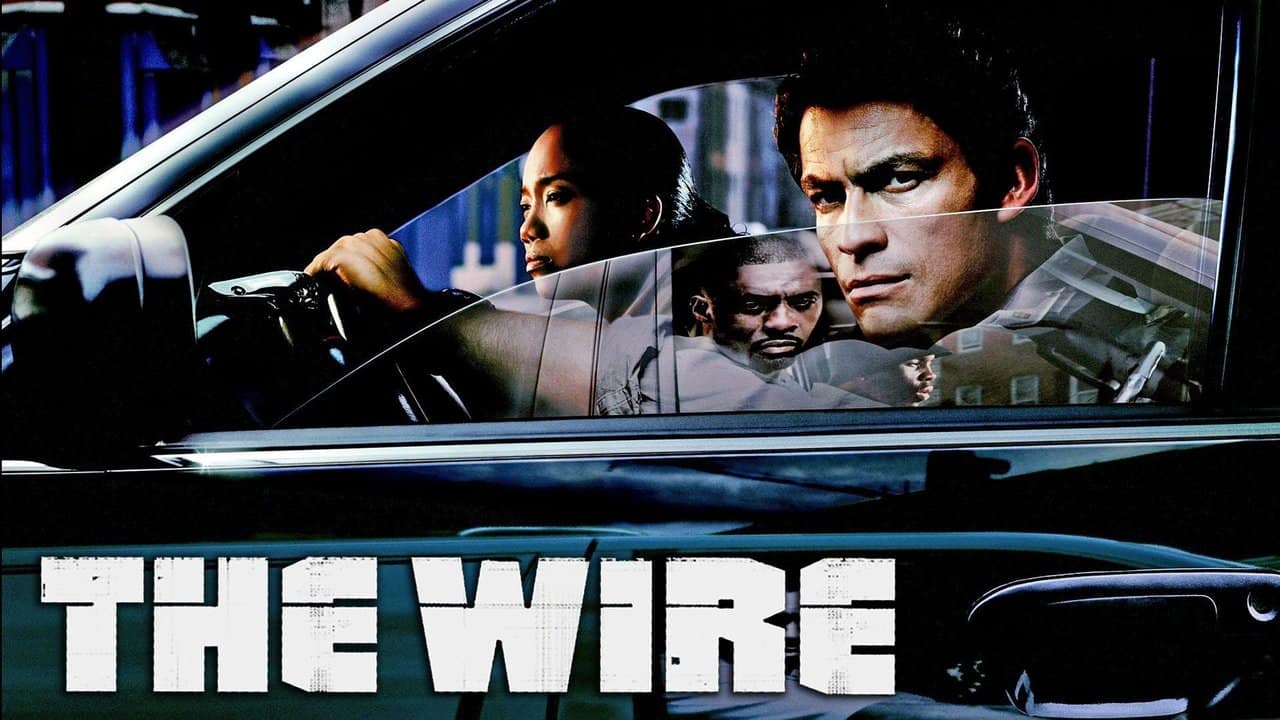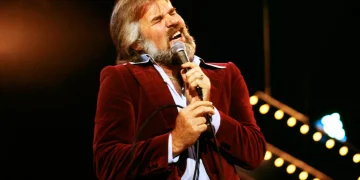American show, The Wire is a crime drama created initially by ex-police reporter David Simon. The pilot episode of the show was launched on June 2nd, 2002, and it wrapped up its finale on March 9th, 2008.
The show revolves around the Baltimore drug scene as observed by law enforcement, drug dealers involved, and the ones addicted to the drugs. The series also shows the state of the lawmakers, schools, and the media involved.
The show stars Dominic West, known for his roles in The Crown and SAS Rogue Heroes, as detective Jimmy McNulty and actress Sonja Sohn, popular for her role in The Originals and Will Trent, as a lead detective Kima Greggs.
Michael K. Williams, famous for Broadwalk Empire and Lovecraft Country, starred as Omar Little. Michael B. Jordan was also in the series a low-level drug dealer, Wallace.
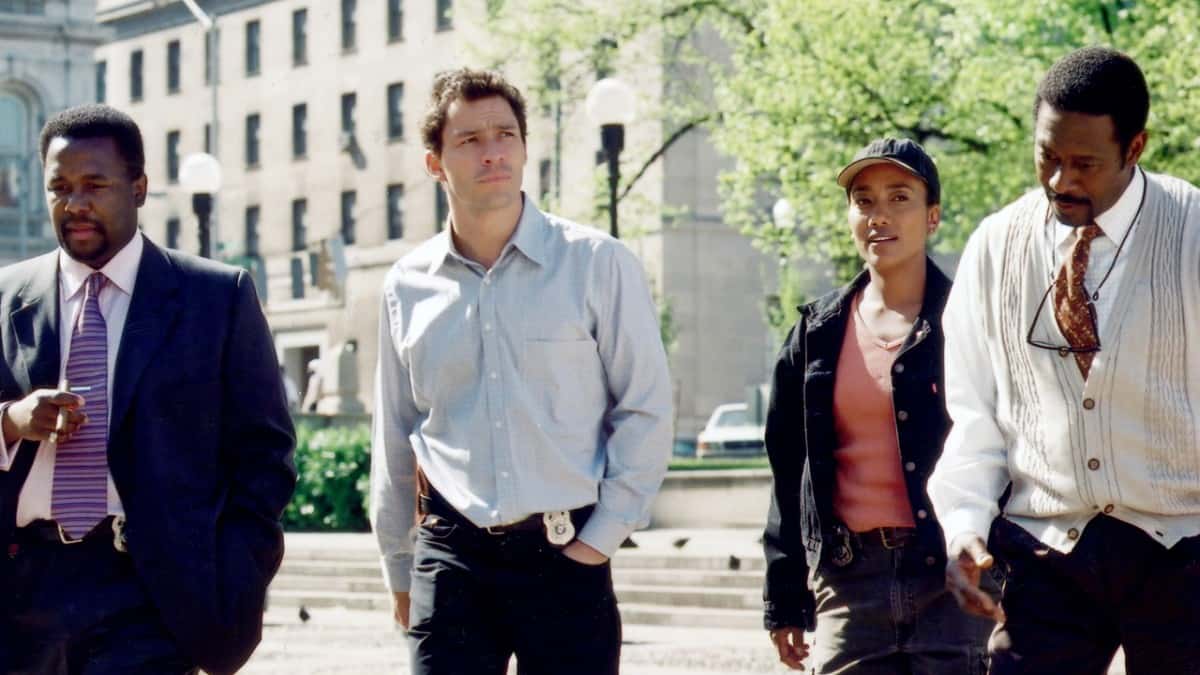
Over the six years that the show aired, it managed to have a vast cast to be a part of it, all popular for their roles in the show. The Wire also included actual Baltimore figures from time to time.
The series has been critically appreciated for realistically portraying Baltimore’s political and social life.
The Wire Storyline
The Wire, mainly written by author and former police reporter David Simon, chose Baltimore as the setting for the series because of his familiarity with the place during his police days. David Simon has said previously that through this show, he wanted to put out a very real and raw version of America, the one that is true and does not have superheroes coming in to save the day.
Season one of The Wire starts with the introduction of the Baltimore Police Department and the Barksdale Organisation or family, an opiate trafficking organization. We see a member of the Barksdale family being acquitted of murder charges after the witness changes their story about the murder.
Detective Jimmy McNulty is shown telling the judge of the criminal activity running out of hand in Baltimore, especially drug-related trades and unresolved homicides. He also tells Judge Phelan about the narcotics empire being run in the town by Avon Barksdale of the Barksdale family.
A war commences between the senior members of the police force who want to put up a facade of investigation and the young and motivated members of the police department who actually want to investigate the Barksdale organization. This tug-of-war among the police force continues for the entire season.
We are introduced to the several levels of the Barksdale organization. The police barely accomplish anything with only a few minor arrests, so they turn to expand the methods of investigation with the use of electronic surveillance methods.
They manage to get their hands on a member of the gang and launch an undercover operation. D’Angelo Barksdale gets arrested again, this time during a drug deal. A low-level member of the gang ends up taking the blame for all murders, and the gang continues to flourish. The sting operation is not a big success, and both Daniels and McNulty suffer the consequences.
The second season starts with McNulty in the marine unit and the drugs still being smuggled. The season also explores the plight of the urban poor and the blue-collar class. There is little work with basically no money for them. Their union leader, Sobotka, does his best to stand up for his men but ends up being involved in the crime life.
Crime at the port is being regulated by another mysterious man, The Greek. Another sting operation is set, but The Greek has a mole within, so he manages to escape all attempts of him getting arrested. The union leader is seen as the murderer behind the death of fourteen girls and some other crimes too.
Since this is not true, Sobotka is killed by The Greeks, and the police are left to think that though the perpetrator may be dead, the operation was still successful.
D’Angelo ends up being killed in prison, and Avon, the actual leader of the gang, is still serving prison time. Barksdale is still functioning, though barely. Stringer (Idris Elba), the current leader of Barksdale, do all sorts of deals to keep the organization afloat.
Season three brings the focus back to street crime and the Barksdale organization. Stringer tries to collaborate with other drug lords just so he gets to run his organization. Clearly, he is not leader material.
Baltimore tries to, in a way, legalize the illegal drug trade and, in some parts, prostitution in order to reduce street crime and also offer health benefits and social services to such people.
A turf war commences, and Omar Little continues to rob the Barksdale organization. The violence and deaths caused by the war call for another investigation, with Daniels’ leading the major crime unit. A political war ensues with the mayoral elections as different candidates try to get the majority of votes.
Omar Little and another guy Mouzone end up killing Stringer, and McNulty gets a tip about Avon’s ammunition. The police raid the place; Barksdale empire crumbles, but another gang run by Marlo Stanfield takes its place. The drug trade still continues.
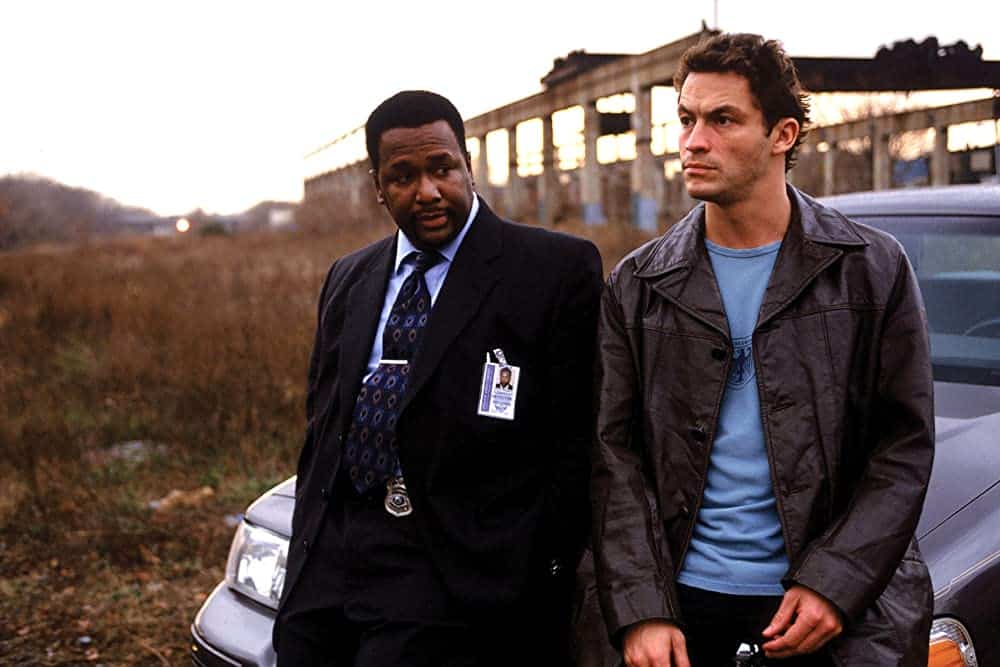
The fourth season brings the focus to the school system and the mayoral elections. Marlo has established his gang in the west of Baltimore, and the incidences of murder and violence have clearly increased. McNulty now works as a patrolman and does not accept Daniel’s offer to join the major crime unit.
An investigation is set up by Kima Greggs to look into Avon’s political donations, but it is soon shut down. The mayoral race is won by Tommy Carcetti, and Omar Little and Marlo continue to have problems with each other. Marlo tries to get Omar killed, but he manages to save himself. Omar instead starts stealing heavily from Marlo.
Marlo tries his best to up his drug business. One of the lower-level drug dealers, Bodie, also the guy who killed Wallace in the first season, tries to help the police with their investigation on Marlo, but he is shot dead by one of the crew members of Marlo’s gang.
Some major events take place in the school facility, and the major crimes unit comes back together to properly investigate Marlo Stanfield.
The fifth season of the show focuses on the media aspect of Baltimore. The new mayor tries to address the state of the education system, which leads to the shutdown of Marlo’s investigation. The Baltimore Sun, a newspaper company, also faces budget cuts, thus missing out on reporting important news to the town.
Marlo is still after Omar Little and is also learning how to manage the business from Proposition Joe. Once the learning is done, Marlo has Joe killed, and he takes up power and control over more territory. Omar returns to Baltimore but eventually gets shot by a Stanfield dealer.
McNulty manages to get the mayor to restore the police budget, and they use it to wiretap Stanfield. Once enough evidence is gathered against Stanfield and his top dealers, all of them get arrested. McNulty and his team are told that they will have to stop their illegal ways of trying to get evidence on Marlo and his gang, or they will have to face the consequences. McNulty and Freamon, a fellow teammate, retire from their positions.
In the final scene, each of the characters continues on with their life. The law and the drug trade had a long but good fight, but it seems that the drug trade won. Corrupt and drug-addicted people enjoy a lavish life with high job profiles, and some criminals serve long sentences, but overall the new drug organizations take over, and the people of Baltimore continue to live their lives just the same.
The Wire Review
The show is written by former police reporter and author David Simon, who has claimed previously to have taken inspiration from real-life individuals while writing characters for the show, The Wire. One of the best parts of the show is that it is not made to look pretty to the eyes or to portray a Candyland view of America. The makers believe in extreme realism and have gone to lengths to make sure the series remains true to that.
A lot of inspiration has been derived from how the actual police force works. The wire has police officers that are downright corrupt, and it also has ones that are willing to do whatever in order to catch the criminals. But the motivation behind such police officers is not that they want to save the city or bring justice back to town. They all have their own egotistical and selfish ways of wanting to catch the criminals.
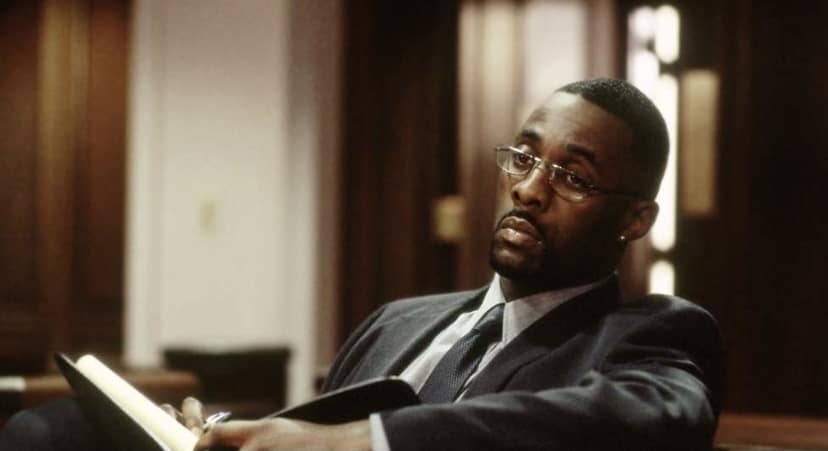
The law enforcers think and work only for themselves, and nobody is a super cop who also happens to be a genius. They are average people who think of themselves to be smart and sometimes end up getting things right. No character is outright black or white. The show is very realistic when it comes to portraying how the police and the criminals work.
Neither the crime aspect nor the police work is glorified. All is shown just how it is supposed to be. The show is raw, organic, and gritty in the best possible ways, be it when it deals with the media representation or the state of the schools, or the political intricacies. Another thing that stands out in the show is the lack of famous actors for the main roles.
The casting team has deliberately chosen people that have unfamiliar faces, theater actors, complete rookies, and at times even actual Baltimore people. This has strangely added to the realness of the show. The show is a crime drama and was also promoted as a cop drama. But it is only when you invest yourself in the show fully that you realize that, in its true essence, it is actually an anti-cop crime drama.
No act of the police or that of the criminal or drug lords has been put on a pedestal. Showing the truth has been the main focus of the show. The show is definitely one of its kind in terms of depicting the power dynamic and politics that play a major role in law enforcement agencies. It has also been heavily praised for being the first of the few to show the actual American life.
The power play was shown during, and after the mayoral race, the condition of the education system and the schools, and the illegal ways that the police used to catch the criminals are all uncomfortable topics that have been explored without any hesitation. The audience is made to see the reality of the world we live in without tinted glasses, and it is much appreciated.
The show came to an end with its fifth season, and we saw most of the characters get on with their lives along with the people of Baltimore. The police managed to take down two large and well-established gangs, but a third one seems to be rising just after. Clearly depicting the failure of the legal systems, the war on drugs is a lost cause.
The show was definitely one of the first that gave black people the same representation as white people. The black actors cast roles with personality and complexity instead of just being there as comic relief or as a filler character.
Prior to this, black actors were often times offered roles especially suited for them, almost as if the real world did not have black hitwomen or black gay cops, or black drug lords. The show became a perfect opportunity for talented black actors to showcase their skills, which they did pretty well considering all the characters felt life-like.
Our Verdict
The Wire, for its time, is a show that is completely diverted from other shows released during the same time. The show obviously came with its flaws, like it took quite some time to get to the point at times. The story feels a bit slow-paced at a lot of different points. Another is that though the show has a proper representation of black people, it still has a pretty male-dominated cast apart from the few key female characters.
Even so, the show feels revolutionary for calling out legal organizations and the failure of the government to maintain order at so many levels so early on. Keeping in mind our current conditions, the entire plot of the show still feels very valid and true.
The show did not get the recognition it deserved way back when it was still being aired, but fifteen years after its release, we realize that it might have been one of the greatest shows ever.
Our Rating: ⭐ (4.3/5).
Also Read: 40 TV Shows To Watch If You Liked The Wire

